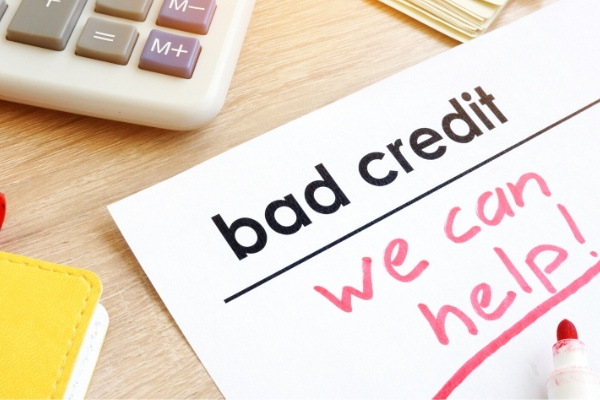How to Get a Home Loan with Bad Credit
The idea of purchasing a home might be overwhelming. If you have a poor credit history, it may be difficult to obtain a house loan. Starting the house-buying process with terrible credit might make getting a loan seem practically impossible. But there is something for you as a bad credit home loan. Here are certain measures you can do to increase your chances of approval.
Look for alternate sources
Banks undertake stringent credit report checks, which can occasionally result in tough inquiries, which might lower your credit score. As a result, you should contact non-banking financial firms (NBFCs) instead of banks, as the latter has more lenient rules for persons with bad or no credit. Aside from credit score, NBFCs compute loans and approvals depending on a separate set of factors.
Go for a smaller loan amount
The loan-to-value (LTV) ratio is the amount of money you want
to borrow from a bank depending on the worth of your home. When you don't have
a strong credit score, you can get a small loan, by seeking a lower loan to
value (LTV) or personal loan, and return it on a regular basis to improve your
credit score. As a result, one can request a lesser loan amount while raising
the down payment, with which the bank will be satisfied. The creditworthiness
can also be steadily improved through this method.
Dipping into your emergency funds
If there is no choice available, you can use whatever fixed deposits or savings you have for a rainy day. However, you must not use your emergency savings unless it is a last-ditch effort.
Show how you've strengthened your financial condition.
If you have had issues before, you must prove that you are now back on track by guaranteeing that all present financial obligations are met on time. This covers not just your debts and credit cards, but also your rent and bills. Proof of consistent savings will also benefit your application.
Credit mix/types of credit:
When you check your record, you'll see that it contains a number of different sorts of credit. These might be either revolving credit (similar to credit cards) or installment loans (like car loans or personal loans). Having a mixture of credit is beneficial to your score, and it accounts for 10% of it.
Joint application or reference
A shared loan is another option for securing a loan despite a poor credit score. One can qualify for a loan here by pairing up with somebody (spouse or close relative) who has a strong credit score. You can increase your loan eligibility by enrolling a co-applicant/guarantor. This enhances the likelihood of loan approval since the other person participates as a co-applicant with the borrower with a poor credit score. Including a co-applicant/guarantor with a greater credit score and good credit profile also decreases the lender's credit risk because the co-applicant/guarantor is also accountable for loan repayment if the main borrower defaults.
Offer interim security
Home loans are often secured loans in which the house
purchased serves as collateral to secure. So, if a person has a good credit
history, he may opt for extra security measures such as fixed deposits, various
property jewelry, and so forth.
The Bottom Line
Even if you have terrible credit, you may still enjoy the
perks of homeownership. Instead, it may just need more study while seeking
finance.



Comments
Post a Comment